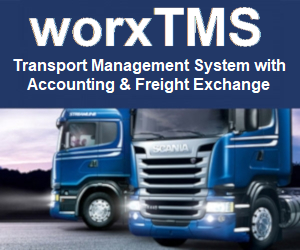Massive shifts in consumer expectations and e-commerce acceleration signal a new direction and new challenges. Shippers are turning to 3PLs' technology expertise to meet service expectations in an ever-changing marketplace.
Until recently, technology enablers and the applications themselves defined the market for logistics information technology. That's changing, as an "explosion of expectations" regarding supply chain visibility, agility, and other capabilities are impacting logistics information solutions, says Steve Ostendorf, senior manager with Deloitte Consulting.
The result? In addition to more familiar applications, like warehouse and transportation management systems and visibility tools, the logistics information universe now includes cloud technology and advanced software development and integration tools. "Exciting developments in blockchain, machine learning, and data science in general place these technologies squarely within the logistics space," Ostendorf says.
Along with the technology shifts occurring, shippers' reasons for implementing logistics solutions continue to evolve. Behind many changes is the disruptive nature of companies like Uber and particularly Amazon, with its "game-changing delivery options" and ability to use data to enhance customer experiences, says Sean Maharaj, supply chain expert and managing director with AArete, a management consultancy.
Many shippers today are deploying logistics information technology solutions to improve operating efficiency and supply chain visibility, says Bob Gormas, vice president, managed solutions, with MGN Logistics, Inc., a provider of managed transportation solutions.
Given carrier capacity constraints across all shipping modes, increased fuel surcharges, and new carrier accessorial fees, shippers are finding it essential to leverage technology solutions that provide the insight they need to better manage every facet of their supply chain.
In addition, the growth in e-commerce during the pandemic made it more difficult for shippers to efficiently manage inventory and meet customer demand. "Cost increases at every level of the supply chain have only amplified the challenges shippers face," Gormas adds.
CHALLENGES SHIFT INTO OVERDRIVE
Indeed, the top four challenges identified by shippers responding to the Inbound Logistics 2021 3PL Market Research Report are: managing transportation costs, finding and retaining qualified labor, and managing e-commerce transactions and inventory.
The growth in e-commerce and direct-to-consumer (DTC) delivery is increasing the volume of shipments at many consumer products companies, says Scott Shaw, senior consultant and supply chain industry lead with Clarkston Consulting. Instead of shipping a single truckload of product to a retailer, many companies now ship the equivalent of a truckload, but divided into individual shipments and headed to multiple consumers' homes.
"This requires more precise inventory visibility within your warehouse, more efficient pick/pack/ship processes, more frequent carrier pickups, and visibility of the shipment up to the time the consumer receives it," Shaw says.
Solutions like warehouse management systems (WMS), transportation management systems (TMS), robotics, and business intelligence tools, which can improve the planning and execution of physical logistics and provide end-to-end visibility, enable companies to succeed in DTC markets.
TURNING TO 3PLS
As shippers strive to succeed in a changing, competitive world, many rely on their third-party logistics (3PL) providers and the technical solutions they offer. Nearly three-quarters (73%) of shippers responding to the Inbound Logistics report state they purchase logistics technology solutions such as TMS and WMS from their third-party logistics providers.
Along with boosting the technology they deploy with their shipping clients, 3PLs are increasing the levels of automation within their own facilities, says Cal Petty, vice president, supply chain consulting services, with Tompkins Solutions, a subsidiary of Tompkins International.
As labor supply shortages compel 3PLs to get more creative in the way they operate, while rising labor costs prompt them, either independently or in conjunction with their clients, to look for ways to reduce costs, many use robots to efficiently perform a range of tasks.
In addition, autonomous and sorting robot technologies and integrations have matured, leading to an increasing number of proven business cases. "This has dramatically increased the interest and adoption of these solutions within the 3PL market," notes Petty.
REVVING UP VISIBILITY AND TRACEABILITY
As logistics technology continues to advance, it's producing solutions that are able to deliver greater visibility and control. For instance, the Internet of Things (IoT) allows for the reporting and monitoring of storage conditions. Artificial intelligence and robotics enable autonomous warehouse storage and retrieval solutions.
"Pairing IoT, artificial intelligence, and mobile and cloud computing allows traceability of individual shipments even as trucks carry them across the country," Shaw says.
While they currently attract a fair amount of attention, blockchain and drones remain "in their early phases," says Evan Armstrong, president of research firm Armstrong & Associates.
Logistics providers will continue to monitor and incorporate new technology as it makes sense for their operations and their clients. As they do, they'll continue to provide value and meet shippers' needs.
MGN LOGISTICS: EMPOWERING SHIPPERS
MGN Logistics, based in Easton, Pennsylvania, is a pioneer in transportation management and logistics. Its sophisticated, cloud-based transportation management system (TMS) offers "robust reporting that empowers shippers, offering them actionable business intelligence to enhance planning, improve processes, and reduce costs," says Bob Gormas, vice president, managed solutions. For several years, Inc. has recognized MGN Logistics as one of the fastest-growing private companies in the United States.
Along with its traditional transportation management solution, MGN continues to invest in technology. Its Managed Transportation Solution (MTS), the product of more than 15 years of insight and experience, provides shippers complete transparency into their transportation spend.
The software also delivers, in a single portal, real-time tracking of every shipment throughout the supply chain, as well as key performance indicators (KPIs) and forecast trends. "Savvy shippers understand that data intelligence, like that provided by MGN, allows for critical decision-making," Gormas says.
And by leveraging MGN's expertise in international logistics, shippers can seamlessly integrate their domestic and global shipping transactions, he adds.
As important, the investment MGN Logistics has made in its transportation technology has simplified implementations. "Our highly secure, cloud-based system eliminates high-cost, on-site software installations," Gormas says.
Instead, MGN partners with clients to understand their transportation challenges and ensure the solution is operational upon completion of the carriers' electronic integration.
Moreover, while shippers sometimes assume deploying sophisticated technology must be costly and time-consuming, the cloud-based systems offered by MGN Logistics "allow for simplified, cost-effective, secure engagements," Gormas says.
Because MGN's solutions are scalable and customizable, they can benefit all sizes and types of shippers. MGN's transportation services include less-than-truckload (LTL), truckload, parcel, intermodal to rail, and international air and ocean freight.
FUELING PARCEL SPEND INSIGHT
A key component of MGN's recent growth has been parcel invoice auditing and management. Through its acquisition of a leading parcel software company, MGN seamlessly provides small package shippers with robust reporting visibility and insight into their parcel spend.
Additionally, their parcel auditing prevents overspend and helps ensure carrier accountability on service guarantees.
Along with state-of-the-art technology, "shippers are looking for an expert partner that is engaged directly in helping them optimize their day-to-day transportation decision-making," Gormas says.
MGN's tactical operations team understands each client's needs and actively works to ensure their ongoing success. In addition, MGN continuously collaborates with its clients to help them proactively manage potential operational challenges stemming from acquisitions, distribution and commodity changes, seasonal adjustments, and other changes.
MGN recently partnered with a private equity group that needed to improve its transportation management function, as frequent acquisitions of new companies had increased transportation spending across its portfolio. "The challenge was to gain laser-focused visibility and leverage the combined spend to reduce costs," Gormas says.
A comprehensive analysis of each company's shipping operation helped the group restructure its carrier utilization and leverage volumetric spend, Gormas says.
The result? Contract optimization for LTL and truckload shipments netted savings of more than $900,000 across the firm. Parcel spending was cut by more than 15%, saving another $1.6 million. A 10% drop in international shipping costs saved another additional $990,000.
In addition, administrative time spent on transportation activities declined, even as visibility increased. And because these improvements are scalable, new acquisitions can be seamlessly integrated into the processes, Gormas says.
MGN Logistics offers the expertise, partnership, and solutions that enable its customers to optimize logistics costs and service and excel in an ever-changing marketplace.



